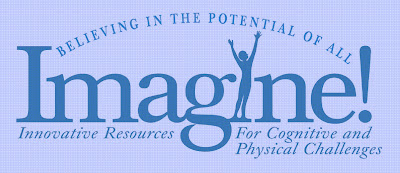This past Wednesday night, I was honored to attend a reception honoring donors to the Imagine! Foundation.
The Imagine! Foundation is a tremendous asset to Imagine!. Since its inception 11 years ago, generous donors have contributed nearly $4,850,000 to the Imagine! Foundation to benefit the individuals we serve!
The evening included a short program that brought donors up to date on the wide-ranging impact their kindness has had on some of our community’s most vulnerable citizens. Imagine!’s Director of Business Development, Greg Wellems, gave an especially touching account of how lives have been changed for the better as a direct result of the Foundation’s support of Imagine!’s SmartHome project. More than a few tears were shed as Greg described the newfound freedom and independence SmartHome residents have achieved through the creative use of technology (technology that would not have been available to individuals served by Imagine! if not for donors to the Imagine! Foundation) in the past few years. And of course, the impact of supporting the SmartHomes doesn’t end with the residents living in the homes. The SmartHomes are now serving as “living laboratories” to test and refine technologies that can be used in individual and family homes to allow people with intellectual disabilities to remain independent, active members of their communities.
On behalf of everyone at Imagine!, let me say “thank you” to all of the generous donors to the Imagine! Foundation. We are so grateful for the overwhelming support from our community!
Thank You Thursday
4 years ago














